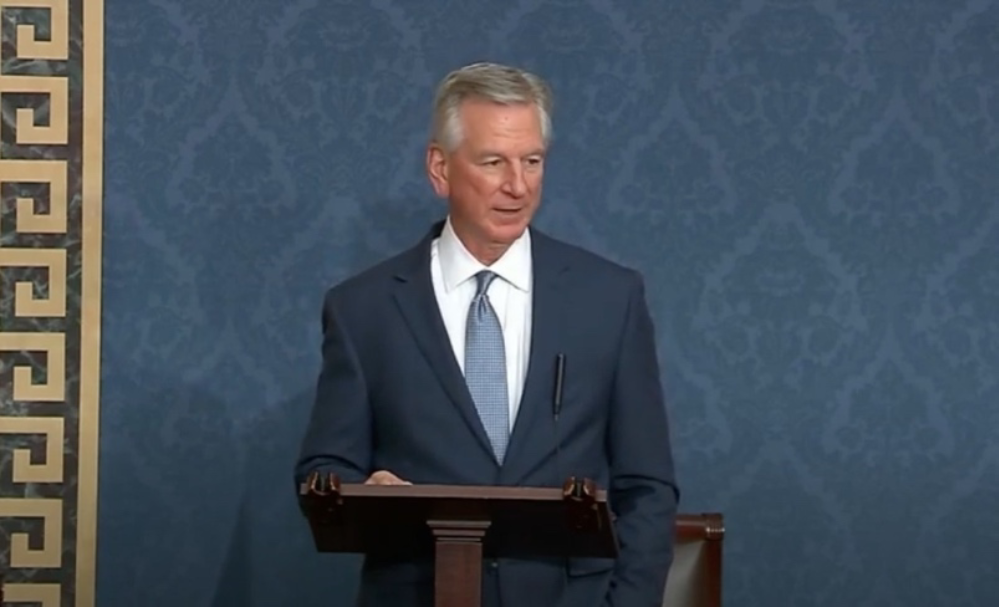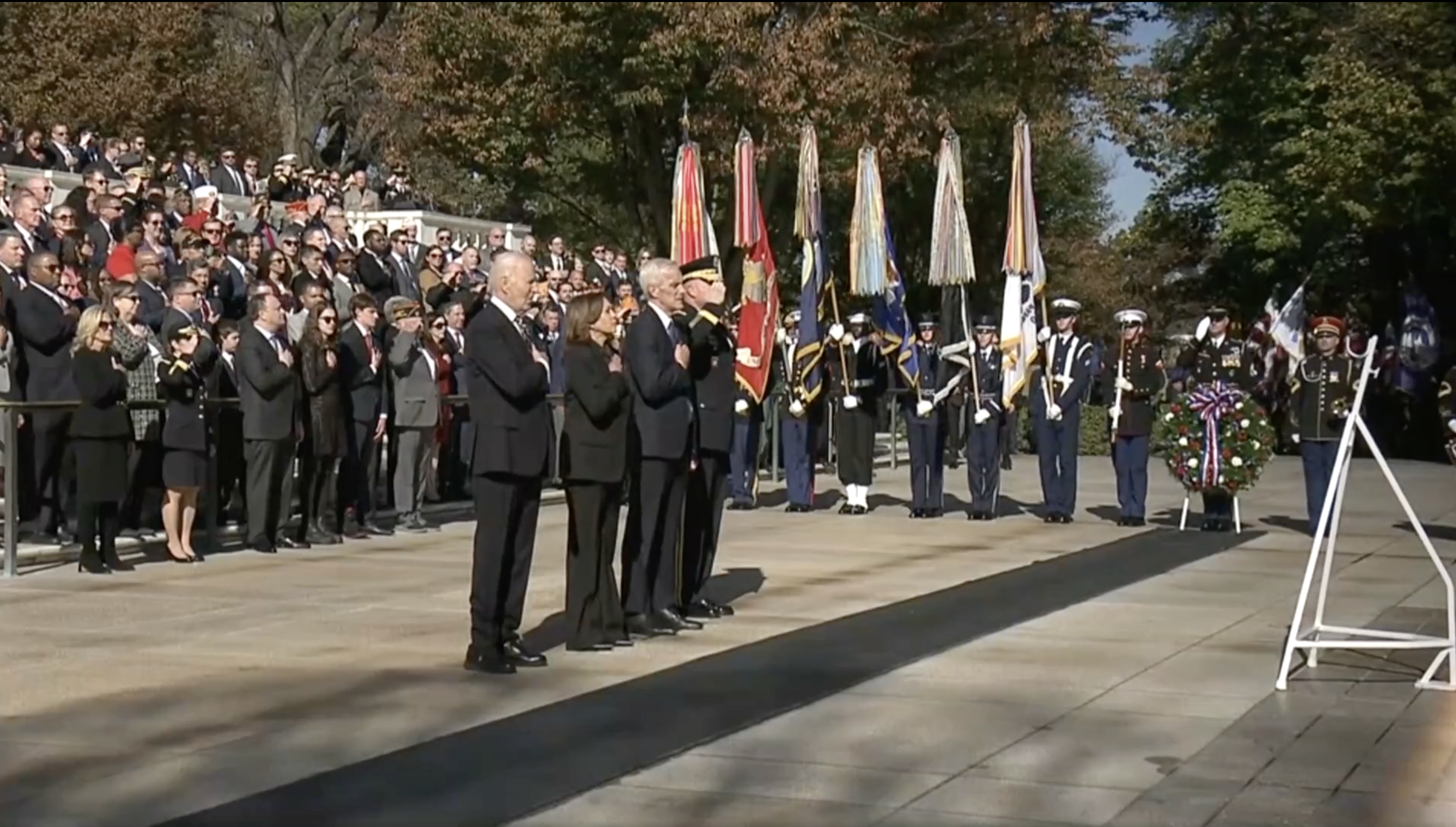On Wednesday, U.S. Senator Tommy Tuberville told Alabama reporters that he supports the Ukrainians in their fight against Russian aggression. However, he believes that NATO and Europe must shoulder more of the load. “We are already over $32 billion in debt. Whatever it takes is going to run out. We don’t need this war, and we don’t need this war to turn into Vietnam,” Tuberville stated.
“I have been for Ukraine ever since it started,” Tuberville told Alabama reporters on Wednesday. “[Vladimir] Putin is a murderer. He should never should have done this. There have been hundreds of thousands of people killed – on both sides.”
“I am really disappointed how this thing really got started,” Tuberville said. “I was in Ukraine a few months before it started. We were told – I was told by President [Volodymyr] Zelenskyy himself they are coming. They are going to come across the border. They are going to try to take more land. Even may try to take the whole country, but we couldn’t get the Biden administration to gear up and to start putting things in place on the border to help the Ukrainians. We were behind, stay behind. This administration was behind. We stay behind,” Tuberville said.
“They (the Ukrainians) are holding their own, but they are playing against a major, a big major country that is right on their border,” Tuberville said. “We have to have more support from NATO.”
“I voted against a lot of the funding,” Tuberville said. “None of us are sure if the proper oversight is going on. There are a lot of Republicans, where all – including me, who are getting antsy about continuing to fund what is going on over there. We need Europe and NATO to step up and do their part. We are carrying the load. The American taxpayers are carrying the load. Europe needs to be carrying the load also.”
“President [Joe] Biden says ‘whatever it takes.’ Well, we are already over $32 billion in debt. Whatever it takes is going to run out,” Tuberville told the Alabama Press. “We don’t need this war, and we don’t need this war to turn into Vietnam that is going to last forever and ever. We can’t afford it. We need to get our focus on China – really our number one adversary around the world.”
During a Senate Armed Services Committee (SASC) hearing Tuesday covering Russia’s war in Ukraine, Sen Tuberville spoke with Lieutenant General (Ret.) Keith Kellogg and foreign policy experts from Georgetown University and RAND Corporation about the dangers of China’s potential entry into the conflict. Senator Tuberville and his SASC colleagues also discussed the threat of Russian escalation, the possible use of nuclear weapons, and the necessary course of action for the United States.
“I was in Ukraine six months before this war started and talked to President Zelensky, and he knew this was coming,” Sen. Tuberville said. “They were putting troops on the border of Belarus, all over the place, building up, knowing it was coming. We didn’t do one thing. We said it was going to be a small incursion. That’s what President Biden said. We’re coming off Afghanistan, where we didn’t look very smart. What would we do different now, General, in your eyes? Now, we are doing it, though it seems like we are one step behind in everything that we are doing. What should we have done different at the beginning? Because it looked like we were going to be the defender of the free world. We need to learn from our mistakes, and we made huge mistakes at the beginning of this.”
“Yes, Senator, thanks for your question. As a former and retired military officer, I’m a little bit disappointed in the military and the intelligence community that either didn’t relay this or didn’t believe it as well,” Gen. Kellogg said. “You know, recall, we had very senior officers say, one, Ukraine would fall in three days of the invasion and try to get President Zelensky a ride out of town. And that’s when he made the comment; I don’t need a ride. I need ammunition. You know, the fact is, we just didn’t really believe it, and we didn’t look at it hard. I would really question our intelligence communities, all of them, and also the military, why their decision-making was so poor in foreseeing this. Most of us saw it. We saw the indicators. I’m a big believer in indicators and patterns, and patterns and indicators were there. So, I think it was a fault somewhere in our systems that we didn’t convince ourselves that it was really going to happen. Part of it may have been a misunderstanding of President Putin himself, and they just didn’t believe he would do it. I’ve actually heard commentators saying up until the day before the invasion, he wasn’t going to do it. Yes, he was. And if you read Putin, and I had a fortune when I was in the National Security Council, I brought Dr. Fiona Hill in on the NSC team. She came out of Brookings, and she’s a very well-read person on Putin. And she says when he says something, believe it, he’s going to do it. We didn’t believe it.”
“General Kellogg, do you have a clear sense of the overall U.S. strategy in Ukraine? And what does victory look like for Ukraine?” Tuberville asked.
“I do not have an overall view of what the current strategy in Ukraine is,” Kellogg said. “I believe we should have one. And I think you have to put, in-state, you have to put Russia’s army at risk in Ukraine. Putin has to understand he’s got two options, lose his army or leave. If his army loses and is defeated, he falls.”
“Can Ukrainians win it on their own?” Tuberville asked.
“No. Let me rephrase, they can win it on their own if we give them the equipment to do it,” Kellogg answered.
“Okay. What’s the most dangerous course of action for the United States when it comes to this conflict?” Tuberville asked. “What puts us in harm’s way?”
“By doing what we’re doing right now because it is not disciplined,” Kellogg asked. “It is also not emphatic.”
“General, how concerned are you about nuclear conflict?” Tuberville asked.
“I think it has to be a consideration simply because it’s in the Russian philosophy to use,” Kellogg explained. “They’ve got a large amount of what we do. And I hate to use the term tactical nuclear weapons, and they believe in using it. And it’s something we really don’t have, and if it’s in their philosophy to use it if it gets pushed, he may use it. I’m hoping that there would be smarter people who prevail, and he would not use it. But you always have to understand the probability and possibility of it happening.”
House lawmakers on Tuesday questioned the Defense Department on how they are managing oversight of security assistance to Ukraine, raising concerns about corruption in Kyiv and weapons being diverted onto the international black market.
Colin Kahl, the Pentagon’s undersecretary of Defense for policy, told the House Armed Services Committee there was no “evidence of diversion” of the billions of dollars in U.S. assistance supporting Ukraine against a Russian invasion.
“We think the Ukrainians are using properly what they’ve been given,” Kahl said. The Pentagon is able to track the equipment going to Kyiv through scanners provided to the Ukrainians and a software inventory database used by NATO. There are also about a dozen officials at the U.S. Embassy in Ukraine for certain on-site visits.
Tuberville said that he looked forward to classified hearings on Ukraine on Thursday.
To connect with the author of this story or to comment, email brandonmreporter@gmail.com.
Related
Share via:














